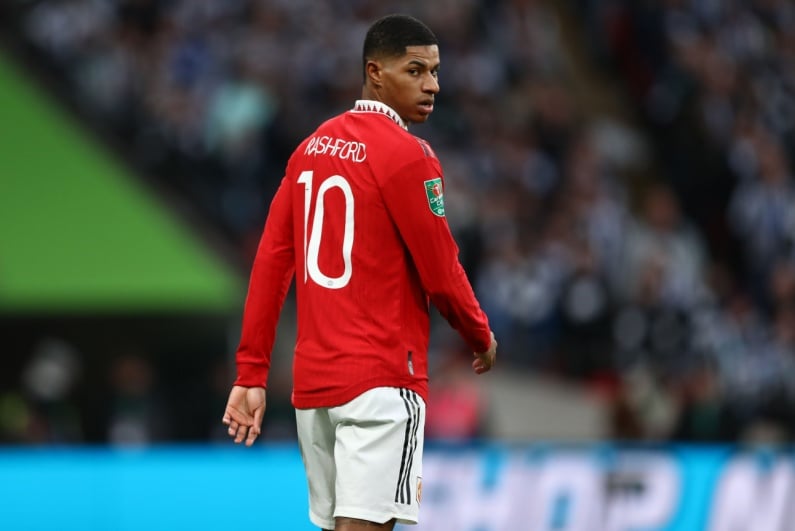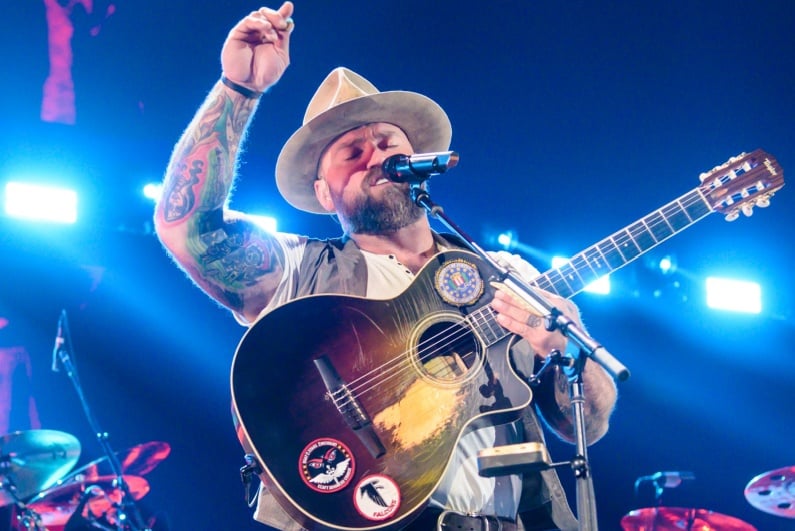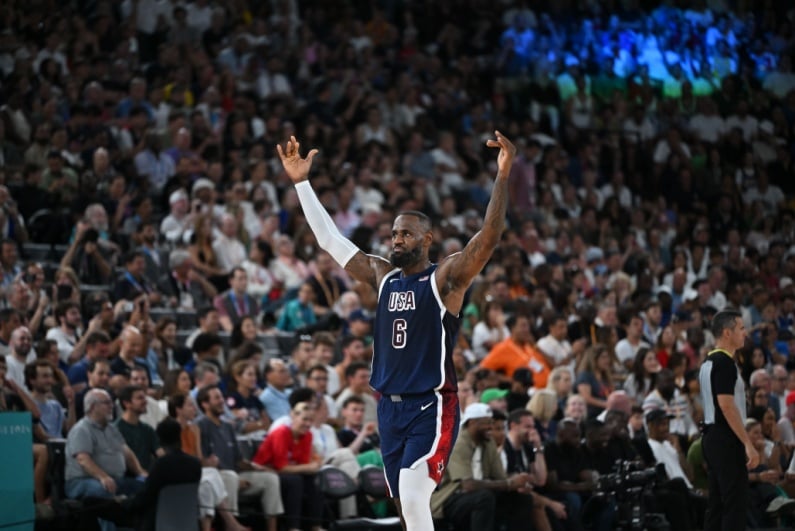End of days at United?
Marcus Rashford’s days at Manchester United appear to be numbered. Despite having been at the club for 20 years – he joined their academy at the age of seven – his time there looks to be drawing to a close.
New manager Ruben Amorim has made clear his displeasure at Rashford’s form and application by leaving him out of his starting XI for the last seven games, and the player himself has openly declared that now is the right time for him to move on.
AC Milan is favorite to win the race
As a result, some of Europe’s soccer giants are jostling for position, all hoping to get the player’s signature before the end of the January transfer window. As things stand, AC Milan is the favorite to win the race and is pitched at just +200 to be Rashford’s next destination, but it is rumored Arsenal has been the first to make a move and has made contact with United.
A deal worth $25.6m has been reported, although there is no indication at this stage if the player would be interested in a move to North London. For the bettors, the Gunners currently look like a decent value at +800.
Other teams in the mix for landing Rashford’s signature are Borussia Dortmund (+800), Napoli (+1000), Juventus (+1200), and Paris Saint-Germain (+1400).
Where did it go wrong for Rashford?
But why has it gone so wrong for him? Why has someone who has played almost 300 games for United and no fewer than 60 times for his country been left on the fringes of the Red Devils’ first team at a time when it desperately needs quality attackers?
Of course, there will be numerous reasons for his fall from grace, but part of it can be traced back to October 2019, when Rashford first dipped his toe into the shark-infested waters of politics. He set up a campaign called In the Box, which was based around providing essential items for homeless people over the Christmas period.
That was just the start, but it was the 2020 pandemic that saw him take his involvement to the next level. In March of that year, a cry for help by a Manchester food charity called FareShare saw Rashford join forces with them as they sought to provide hot meals for 1.3 million children – those who, as a result of the schools being closed, were denied the ability to access free school meals.
With the British government of the day doing nothing to fill the void, Rashford linked up with FareShare and initially made several personal donations to the charity, which within a couple of months was providing over 2 million meals for related projects that supported the affected children.
Huge public support
With the help of Rashford’s public endorsement, the charity raised over £20m ($24.6m). In addition to his personal donations, he also engaged with his 2.8 million followers on X (formerly Twitter) and the entire football community, which threw enormous weight behind his cause.
It was the first time that, to Rashford himself, his political clout was evident. As a result, he quickly earned a reputation in the British media as a champion of the poor and someone whose roots were still at the forefront of his mind. It became evident that he held a degree of political influence that those in power in Westminster could, at that time, only dream of.
openly supported Rashford’s campaign
Others were taking note of Rashford’s influence beyond soccer and added further momentum to his campaign. High-profile British politicians, such as London Mayor Sadiq Khan and Labour back-bencher Rebecca Long-Bailey, openly supported Rashford’s campaign, along with the whole of the Labour Party. He was also interviewed by the BBC and had a column in The Times.
Other British institutions, such as The Co-operative Group, also aligned themselves with Rashford and his campaign for government-funded free school meals. The Co-op, as a result, played its own part by ensuring that 6,000 students who previously received the free meals were given food vouchers.
Rashford vs Boris Johnson
It all added momentum to Rashford’s campaign and when #maketheuturn started to trend on social media, it became clear that he had started something with extraordinary power. An open letter from Rashford to the British government was what finally did the trick.
Sure enough, from a position of weakness, Prime Minister Boris Johnson announced that the government-funded free school meals would remain.
It was an extraordinary moment for the UK and for Rashford himself, who had achieved something the politicians had failed to do … and something that went way beyond his remit as a pro soccer player.
But it was merely the start. Buoyed by his success in taking on the government of the day he took his fight against child poverty a step further by setting up the Child Food Poverty Task Force in collaboration with several UK food shops, charities, and delivery companies.
As a result of all of the above, he was awarded a Member of the Order of the British Empire (MBE) and vowed to continue his campaign.
More effective than Keir Starmer?
His next campaign was in the form of a petition on the UK Parliament website asking for an end to child food poverty by expanding the free school meals program. It received over 100,000 signatures in its first ten hours and over 300,000 within a week.
Other political acts included working with Mayor of Greater Manchester Andy Burnham and local businesses in Manchester to provide 1,000 food vouchers over half-term.
another win for Rashford
This escalated beyond the North-West to nationwide, with over 100 businesses, charities, and local councils pledging to the campaign. Eventually, the government responded again and offered to provide another £400m ($493m) to support the cost of food and household bills for struggling families. It was another win for Rashford.
It was around that time that Prime Minister Johnson cited Rashford as being a more effective leader of the opposition than Keir Starmer, the then-leader of the opposition.
It is a position of influence that Rashford has used ever since. A hook-up with a renowned British chef offered simple online recipe cards for struggling families with the idea that no one should go to bed feeling hungry. He even joined in with World Book Day and in the process, learned sign language to judge a poetry competition.
He also publicly threw his weight behind the Black Lives Matter movement that followed the death of George Floyd in the US.
Others to take the Rashford route
But Rashford is not alone in making the transition from sports star to politician. While the England star used the unique circumstances of the pandemic to move into the political arena while also still being an athlete, others have waited for retirement to go all-in on politics. Here are a few:
Not content with being one of Africa’s all-time greatest footballers, George Weah went on to become the most powerful man in his native Liberia when he was elected president in 2018.
Liberia’s record goal scorer rose from humble beginnings in a slum of the capital Monrovia, and went on to play for some of the biggest teams in Europe, winning many trophies and accolades along the way.
But it was his retirement from soccer at the age of 37 in 2003 that saw him take a different route. After a series of failed attempts to get elected to positions of power, he finally won elected office in 2014 as one of his country’s senators. It was his first step on the road to the presidency.
He was elected to the top job in 2018 and served two terms, staying in the post for six years until 2024.
Imran Khan for PM
In his sporting career, Khan was one of the world’s best cricketers, playing for and captaining the Pakistan national team between 1971 and 1992. In 1992, he led them to their one and only World Cup victory.
a major political force
Upon his retirement from first-class cricket, he turned to philanthropy and politics, and in 1996 launched his own political party. In 2002, he was elected to Pakistan’s National Assembly, at which point his party was recognized as a major political force. His party later established itself as a serious political threat in the 2013 elections.
Khan was Prime Minister from 2018 to 2022, though his term was a controversial one and beset by rumors of corruption. He is currently appealing a jail term.
Jesse Ventura
Ventura is among the best-known examples in the US of a sportsman who went on to achieve high office in politics.
Jesse “The Body” Ventura, as he was known in his time as a professional wrestler, was a Navy Seal and a Vietnam veteran who found fame in the ring and as a commentator during the 1970s and 1980s.
But his fame and popularity took him way beyond the wrestling ring in the 1990s when, as an independent candidate, he was elected the governor of Minnesota.
For an even more high-profile example of a sportsman turned politician look no further than Arnold Schwarzenegger. The Austrian, who experienced worldwide success as a bodybuilder in his native country before moving to the US to become a movie star, also went into politics and served as governor of California from 2003 to 2011.
US sports stars who swap kits for suits
Another to make it big in US politics was Jack Kemp – an NFL quarterback in the 1960s – who was a Republican Congressman for 18 years, working closely with Ronald Reagan before and during his terms as president.
Kemp tried unsuccessfully to run for vice president and president and served under George H. W. Bush as his housing secretary. On the opposite side of the US political spectrum, Bill Bradley – a former star basketball player with the New York Knicks – was a Democratic US senator for New Jersey for 18 years.
But it’s not just stars of US sports that have made it big in politics. Soccer stars – specifically Brazilian soccer stars – have taken the Rashford route a step or two further.
Senator Romário
In 1994, Romário was voted FIFA’s World Player of the Year, but along the way earned himself a reputation as someone who was often embroiled in chaos and controversy. Upon his retirement from soccer, he reinvented himself as a politician – initially as a campaigner for disabled children (his sixth child was born with Down’s Syndrome) – but later as a senator in the Brazilian parliament. He remains in politics to this day.
Another Brazilian soccer superstar to take the politics route was Sócrates – an international of the 1970s and 1980s and captain of the brilliant Brazil team at the 1982 World Cup. But Sócrates was always more than a soccer player. Before becoming the World Cup star he studied medicine and was well known for his political views and intellectual viewpoints.
While he never sought formal political office, his influence always extended far beyond the football pitch and he co-founded what was known as the Corinthians Democracy movement, which opposed the military government and demanded new presidential elections.
Lord Coe joins the other side
Olympic athletes, too, have switched lanes. There have been several high-profile figures who have swapped tracks for offices.
In the UK, Sebastian Coe (now Lord Coe) went from winning Olympic gold in 1980 to becoming a Conservative politician and life peer in the UK’s House of Lords. He was also instrumental in London winning the right to host the 2012 Olympics. In addition, Menzies Campbell, the former leader of the UK Liberal Democrat party, was described as “the fastest white man on the planet” when he held the British 100m record in the 1960s.
Paralympians have also been well represented in the political sphere in the UK through Baroness Tanni Grey-Thompson who, after winning 16 Paralympic medals, was appointed a life peer in 2010.
Rashford is not alone
In Mexico, 400m runner Ana Gabriela Guevara went on to become one of the country’s senators, while in Kenya, long-distance runner Wesley Korir, who was the winner of the 2012 Boston Marathon, has been elected a member of the Kenyan parliament.
And finally, boxing, which has seen two of its biggest names go on to become high-profile politicians in their native countries. In the Philippines, legendary fighter and world champion at multiple weights, Manny Pacquiao, won election to his country’s congress back in 2010 and is now a senator, while in Ukraine Vitali Klitschko – a three-time world heavyweight champion – is now the mayor of Kyiv.
So… if Rashford does eventually decide, probably when his playing days are over, to make it official, he’s far from alone. There’s no natural link between sports and politics – and many say the two should never mix – but as Rashford and all of the above have shown, the clout that comes with being a top-level sportsperson should never be underestimated.




